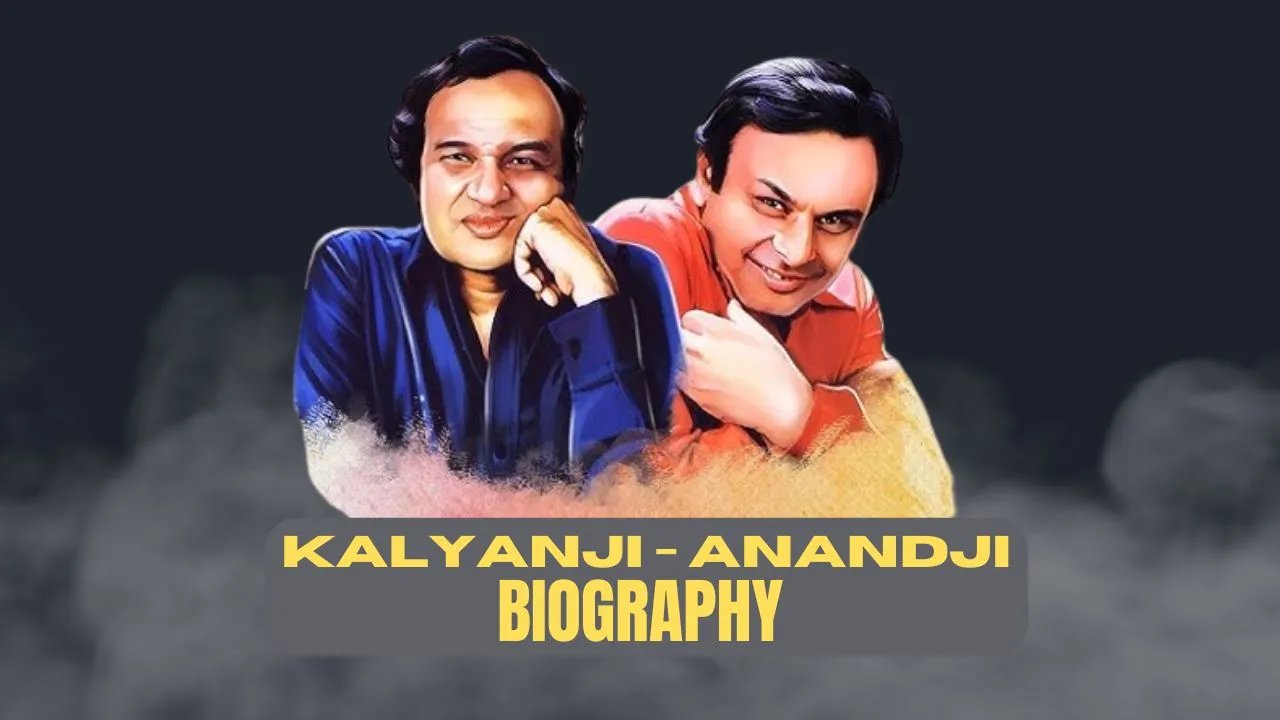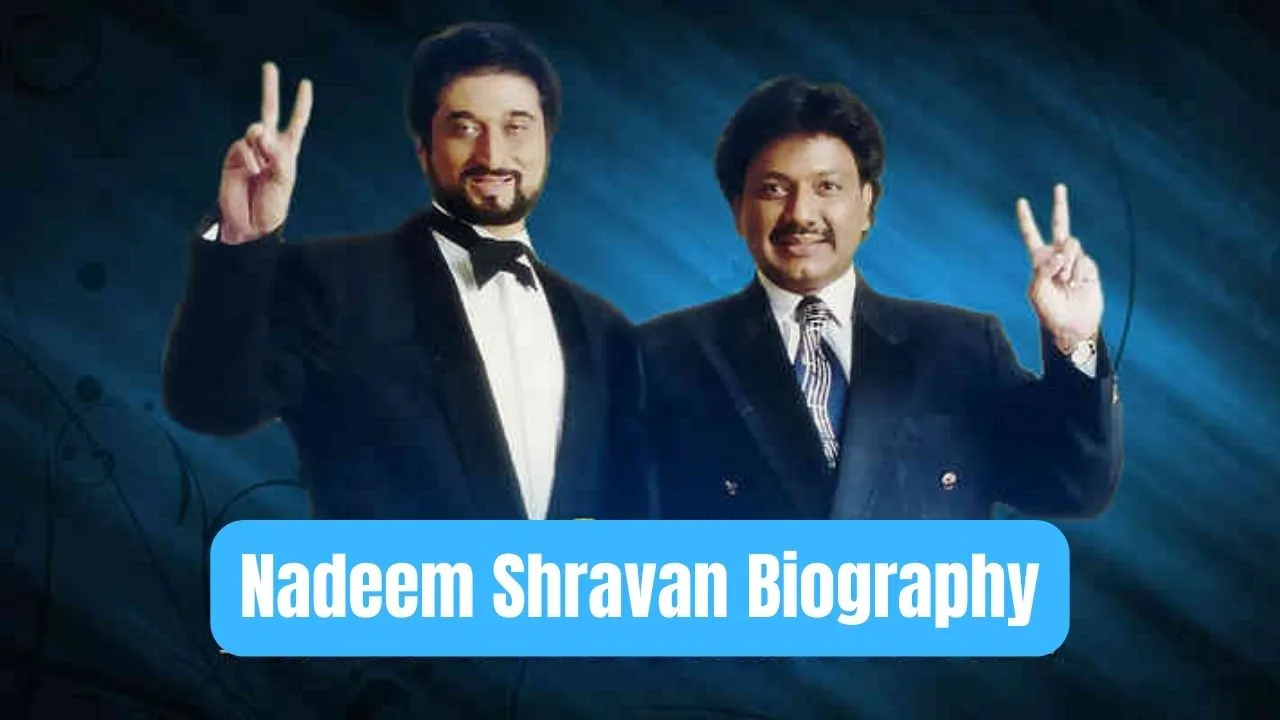Jatin Lalit Biography: In the rich tapestry of Bollywood music, there are few duos as iconic and beloved as Jatin-Lalit. Comprising the talented brothers Jatin Pandit and Lalit Pandit, this dynamic duo left an indelible mark on the Indian music industry with their soul-stirring compositions and timeless melodies. From heart-wrenching ballads to foot-tapping dance numbers, their music has captivated audiences and defined an era of romance in Hindi cinema, earning them a special place in the hearts of millions of fans worldwide.
Jatin Lalit Biography
Early Life and Musical Upbringing:
Jatin Pandit and Lalit Pandit were born into a family of musicians in Mumbai, India, with music coursing through their veins from a young age. Their father, Pandit Pratap Narayan, was a renowned classical vocalist, and their mother, Sulakshana Pandit, was a well-known playback singer in the Indian film industry. Surrounded by the sounds of music from infancy, the brothers developed a deep passion for melody and harmony that would shape their destiny as composers and arrangers.
Their musical journey began in the early 1980s when they started working as assistant music directors under the guidance of veteran composer duo Kalyanji-Anandji. It was here that they honed their skills and learned the intricacies of film composition, laying the groundwork for their future collaborations as Jatin-Lalit.
Rise to Prominence:
Jatin-Lalit’s breakthrough came in the early 1990s with the release of the film “Jo Jeeta Wohi Sikandar” (1992), which featured a soundtrack that struck a chord with audiences and catapulted the duo to stardom. The film’s songs, including the iconic “Pehla Nasha” and “Yahaan Ke Hum Sikandar,” became instant classics and established Jatin-Lalit as the go-to composers for romantic melodies in Bollywood.
Throughout the 1990s and early 2000s, Jatin-Lalit dominated the music charts with a string of blockbuster albums that showcased their versatility and range as composers. From the soul-stirring ballads of “Dilwale Dulhania Le Jayenge” (1995) to the foot-tapping beats of “Kuch Kuch Hota Hai” (1998), their music captured the essence of love, longing, and celebration, earning them a dedicated fan following and critical acclaim.
The Romantic Era of Bollywood Music:
Jatin-Lalit’s music became synonymous with the romantic era of Bollywood music, a time when melodies reigned supreme and songs played a central role in the narrative of Hindi films. Their ability to capture the nuances of human emotion and translate them into musical compositions set them apart as true masters of their craft, earning them a reputation as trendsetters and innovators in the world of Indian music.
One of the hallmarks of Jatin-Lalit’s music was their seamless blend of traditional Indian melodies with Western influences, creating a sound that was both timeless and contemporary in its appeal. Whether it was the haunting strains of a romantic ballad or the pulsating rhythms of a dance number, their music had a universal appeal that transcended cultural boundaries and captivated listeners around the world.
Controversy and Challenges:
Despite their phenomenal success, Jatin-Lalit’s journey was not without its share of controversies and challenges. In 2005, the duo parted ways due to creative differences, with Lalit Pandit pursuing a solo career while Jatin Pandit chose to focus on other ventures. The split came as a shock to their fans and left many wondering what could have been if they had continued their collaboration.
In addition to their personal struggles, Jatin-Lalit also faced allegations of plagiarism for some of their compositions, with certain songs being accused of bearing similarities to existing tunes. While these controversies tarnished their reputation to some extent, they did not diminish the impact of their music or their contribution to the Indian music industry.
Awards and Accolades:
Jatin-Lalit’s contributions to Indian music have been recognized with numerous awards and accolades throughout their illustrious career. They received several Filmfare Awards for Best Music Director for their work on films like “Jo Jeeta Wohi Sikandar” (1992), “Dilwale Dulhania Le Jayenge” (1995), and “Kuch Kuch Hota Hai” (1998), solidifying their reputation as one of Bollywood’s most successful music duos.
In addition to their national honors, Jatin-Lalit also received international recognition for their music, earning them a dedicated fan following and critical acclaim in markets around the world. Their songs continue to be cherished by audiences, serving as a timeless reminder of their enduring legacy in the world of Indian music.
Legacy:
As we reflect on the illustrious career of Jatin-Lalit, it becomes evident that their music has left an indelible mark on the fabric of Indian entertainment. Their melodies continue to evoke nostalgia and stir emotions in listeners, transporting them to a time when music was more than just a soundtrack—it was a reflection of the human experience.
Though their partnership may have come to an end, the legacy of Jatin-Lalit lives on through their timeless songs, which continue to captivate and inspire audiences around the world. Their music remains a testament to the power of melody, the beauty of harmony, and the enduring magic of Bollywood. Jatin-Lalit may have composed their final notes, but their melodies will echo through the halls of Indian music for generations to come.


